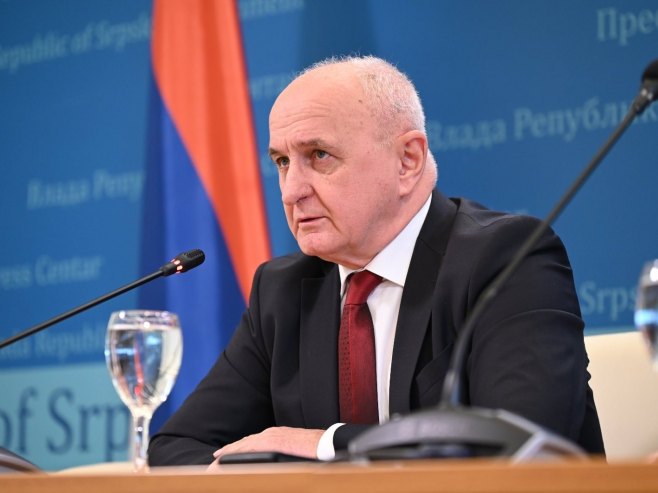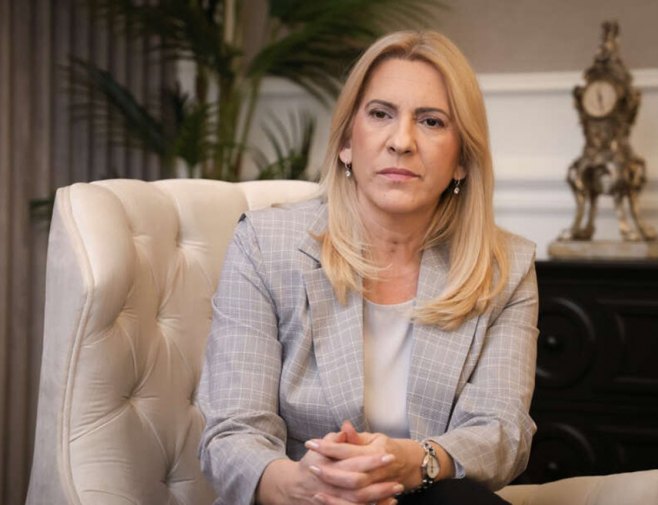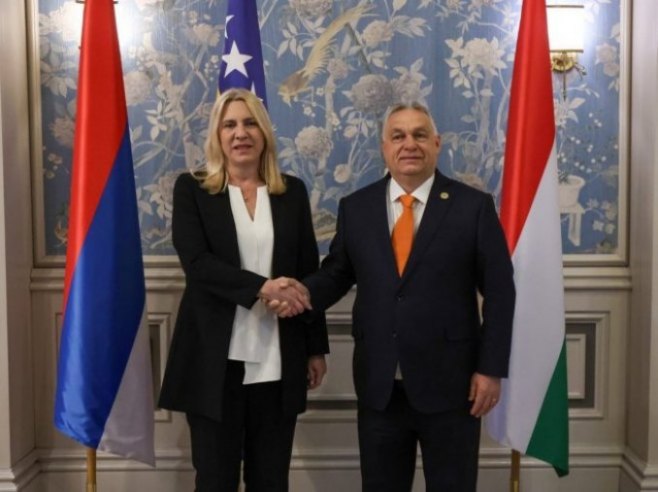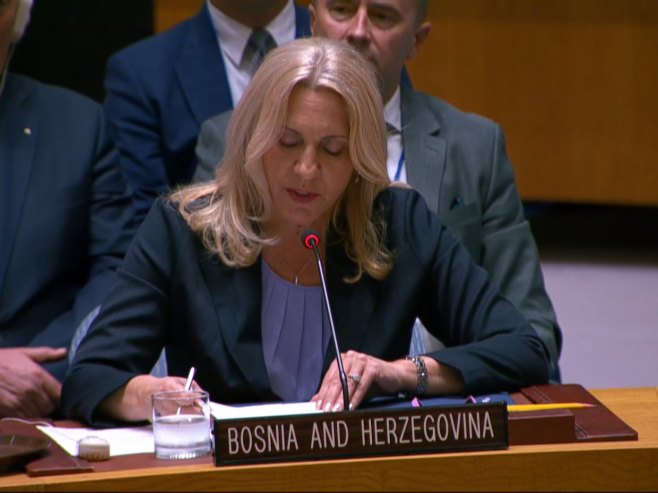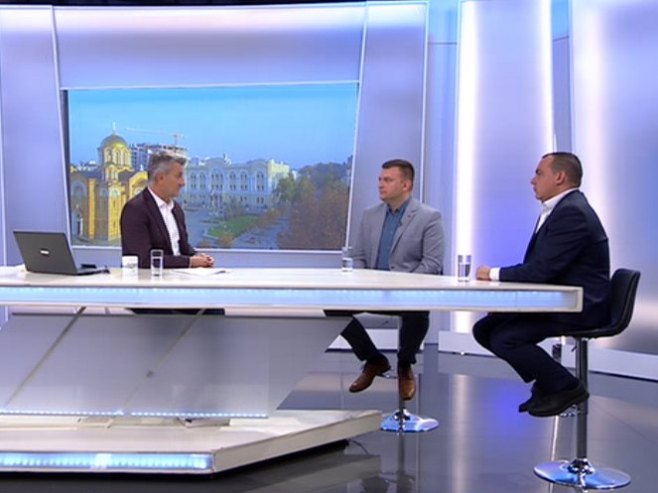When it comes to Srebrenica and everything that happened during the last war in Bosnia and Herzegovina, what everyone needs is the truth.
Not a Bosniak, Serb, or Croat version, but one, genuine truth.
It should be established without any imposition or misuse. This is the work of historians and the ideal of every thoughtful person. However, the question remains whether we are ready to accept this truth, to reach it and confront it, or whether the goal is to satisfy certain temporary interests and needs and, in that context, misuse the past.
This is what historian Miloš Ković stated in an interview for “Glas Srpske” after former U.S. Ambassador to Belgrade William Montgomery reopened the topic of Srebrenica, saying that he believes what happened there was a war crime, while Rwanda is an example of genocide.
According to Ković, Montgomery undoubtedly knows the situation in the Balkans very well, which sets him apart from other U.S. diplomatic representatives in the former Yugoslav territories.
“Srebrenica is one of the crimes committed during the last Defensive-Patriotic War. This cannot be denied, but the number of those killed and the manner in which Muslim soldiers and men from Srebrenica perished—whether in combat or during an attempted breakthrough—must be discussed and clarified. Many questions remain for science to answer in the future, including how to classify the numerous crimes against Serbs in Podrinje. What constitutes genocide and what does not? Edward Herman and David Peterson wrote an excellent book, ‘The Politics of Genocide,’ with a foreword by Noam Chomsky. When we observe how some in the West and even in our region misuse and manipulate this term, one might think Chomsky was right when he suggested we temporarily forget it. However, I believe Serbs should not forget this word, given that genocide against them was committed three times in the past century—during World War I, World War II, and through the destruction of Serbian populations in Krajina and Kosovo and Metohija. All these events fit the definition of genocide,” said Ković.
GLAS: Nobel laureate Ivo Andrić described this region as a “damned yard.” Will we ever shed that label?
KOVIĆ: We have two choices—either cooperate or remain in a state of perpetual conflict and strife that benefits no one. The wars behind us have left much bitterness and painful memories. Major powers have often started large wars in this region, dividing us into opposing armies—Muslims siding with the Ottomans, Catholics with Austria and Venice, and Orthodox Christians mostly siding with other Christians, even Catholics. The position of the Orthodox was far from simple. Once Russia rose in the early 18th century, Serbs always watched which side this Orthodox country took. Later, Serbs supported the idea of creating Yugoslavia, founded on the notion of living together regardless of religious and ethnic differences. That idea failed, and Serbs were the last to abandon it. I don’t think we should revive such illusions. What’s done is done, but there is still a need to find a modus vivendi. Serbs advocate for this the most, which is natural since they live in all neighboring countries.
GLAS: Is what is happening today—not only in Bosnia but also in Kosovo—an attempt to complete what began in the 1990s with the breakup of the former state and the fragmentation of the Serbian factor?
KOVIĆ: Absolutely. After the breakup of Yugoslavia—heavily influenced by countries like Germany and the United States—Serbia is now the target. Open efforts to carve it up are ongoing. These processes are common in international relations; when a state shows weakness, neighboring countries or major powers seek to divide it. Interestingly, Western powers in Bosnia support completely opposite processes—forcing groups that can barely coexist to remain together. However, international relations are shifting. The future brings many uncertainties and risks, so Serbs must carefully monitor developments and align their interests with the policies of major powers, particularly those showing goodwill—especially Russia and China, as well as other supportive nations.
GLAS: Around the world, new maps and spheres of influence are being drawn. Can parallels be made with earlier historical periods?
KOVIĆ: Once the U.S. accepts that it is no longer the sole global superpower, new lines of division and spheres of interest will emerge. Such divisions are nothing new; they have been common in the Balkans since the 18th century. Historians study the agreements made by major powers, as this is a recurring pattern in international relations. Small states and nations must carefully monitor the interests of larger powers and, based on objective information, make decisions about achieving their national goals and interests.
GLAS: Turkey’s role in today’s processes, particularly regarding Syria and the Middle East, suggests attempts to revive its neo-Ottoman empire. How do the Balkans fit into this narrative?
KOVIĆ: Turkey is a regional power whose potential cannot be underestimated. It has demonstrated its influence in Central Asia, the Caucasus, the Middle East, and the Balkans—regions it historically views as its own. However, Turkey may be overestimating its current strength and capabilities. For Serbia, Turkey is important, especially in rebuilding relations with Balkan Muslims. Turkey can act as a mediator, but its actions—such as building a weapons factory in Kosovo and arming Kosovar Albanians—send the wrong message. Serbia must approach Turkey cautiously, recognizing that it cannot be a strategic ally but may occasionally act as a tactical partner, provided it does not turn against Russia.
GLAS: Are you concerned about the rising militarization across Europe?
KOVIĆ: I fear the EU is rushing into armed conflict with Russia. It is already involved in Ukraine, directly and indirectly. Given Germany’s historical experiences in two world wars, one wonders where reason and lessons learned have gone. Everything resembles a runaway train headed for disaster. I hope this train stops before reaching the precipice. However, if the worst-case scenario occurs—barring a nuclear catastrophe—significant changes in borders will follow worldwide and in the Balkans. That’s another reason to closely monitor unfolding events.
GLAS: Could strengthening sovereignty movements, often labeled as right-wing, bring clarity to Europe?
KOVIĆ: These movements are not just right-wing; they can include leftists, like Mélenchon in France. Leaders focused on national interests are essential. European nations must abandon illusions and reevaluate whether the EU experiment is beneficial. Issues such as mass migration are altering demographics, economies, and cultural identities. Europeans must also question whether entering military conflicts, even nuclear ones, with Russia serves their interests. I hope they wake up in time. If not, the consequences will be dire for all European nations, including us.
GLAS: Can the EU survive in its current form, especially if more sovereignty is transferred to Brussels?
KOVIĆ: Two options exist—decentralization and sovereignty restoration or further centralization. Neither scenario bodes well for the EU’s future. European leaders must strike a balance, but whether they can do so remains to be seen.
Source: Glas Srpske

